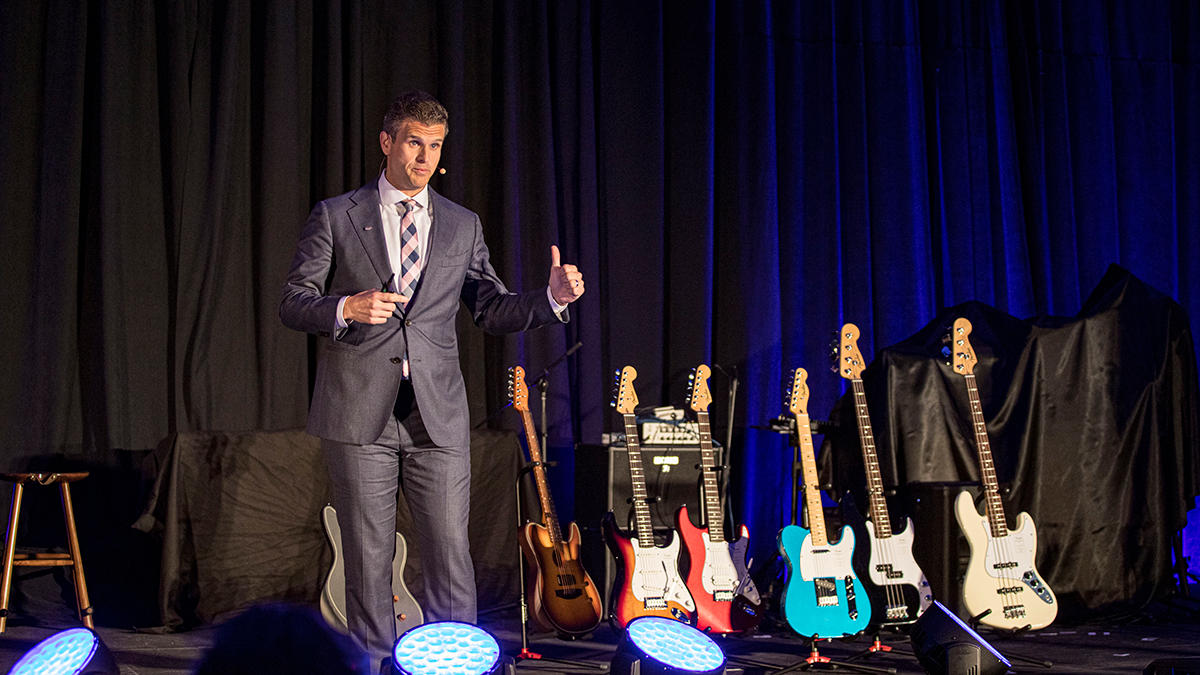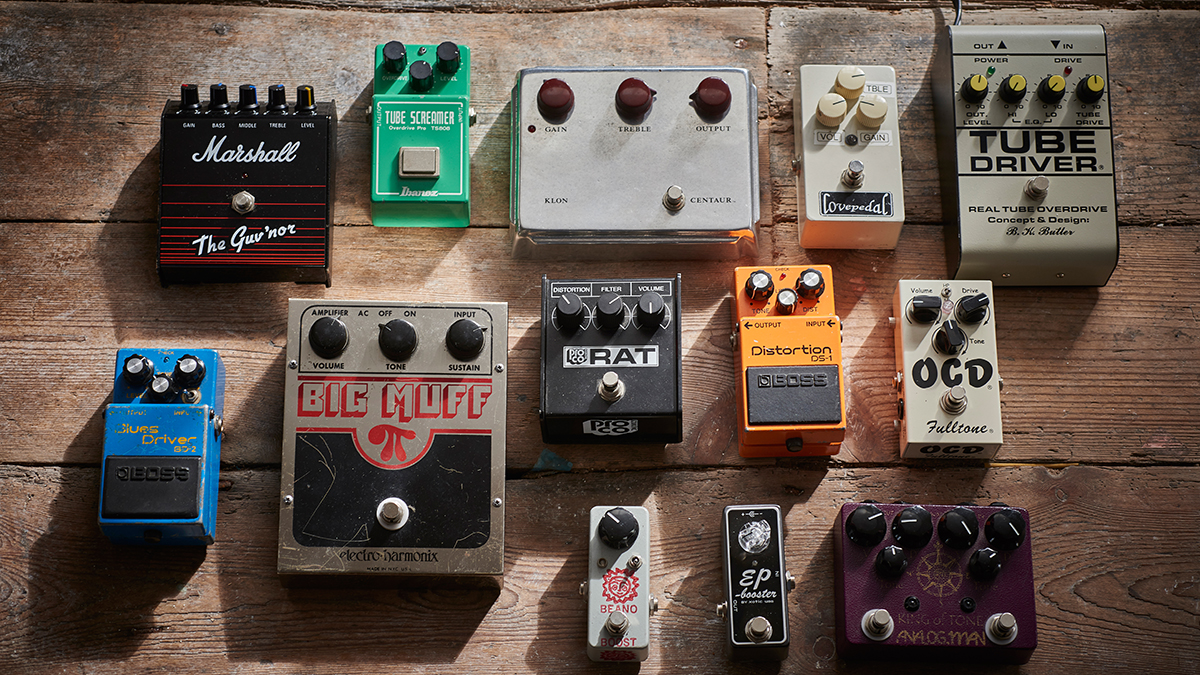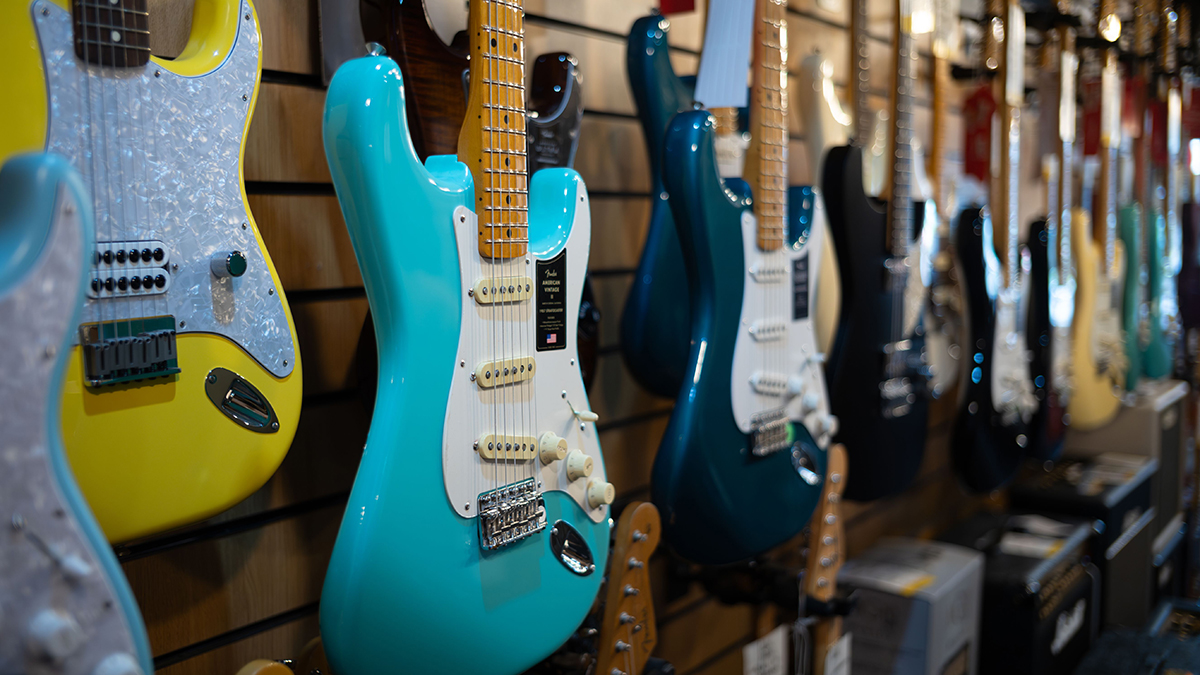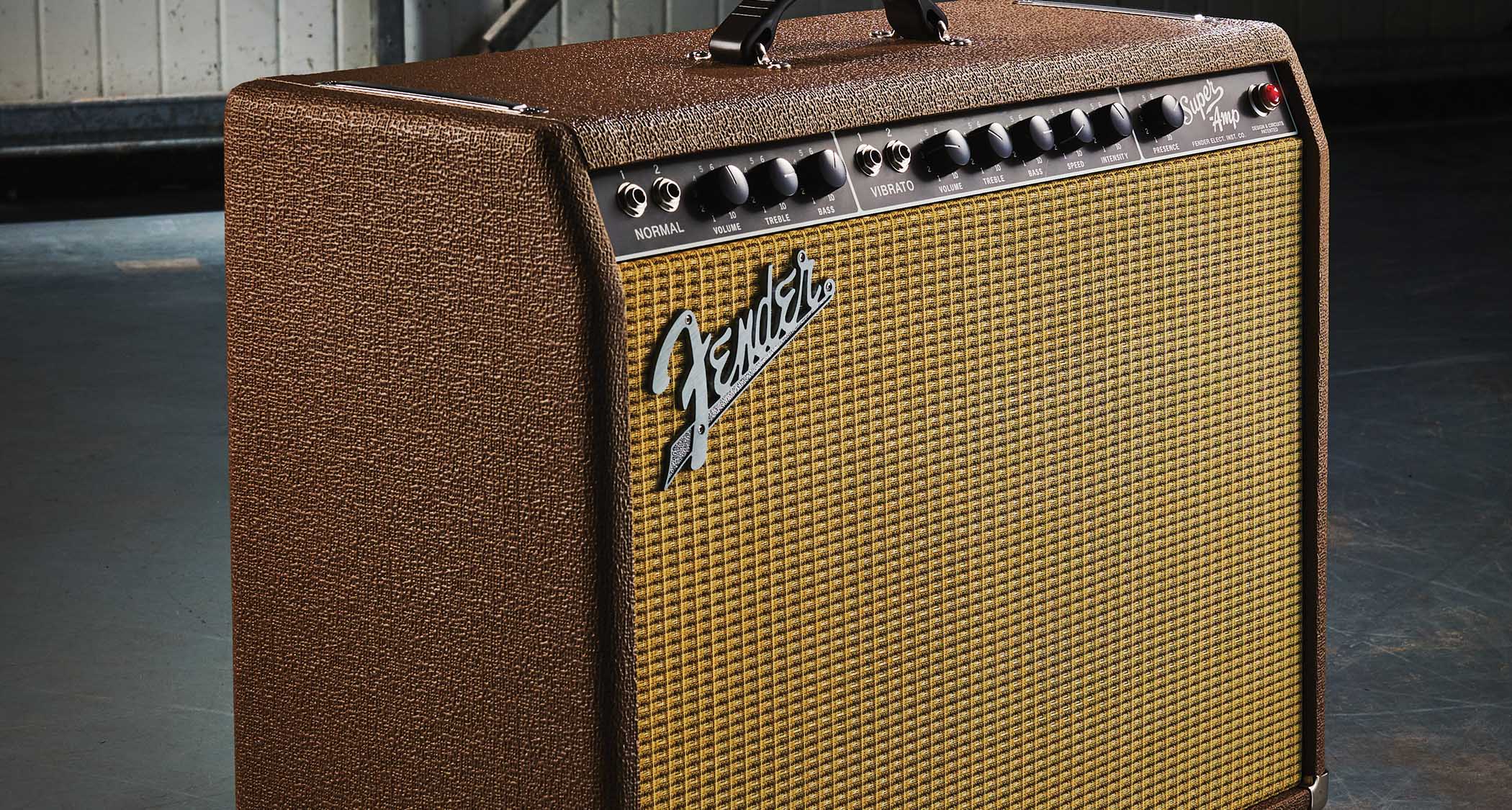“A welcomed relief for our industry”: NAMM President reacts to the de-escalation of tariffs on Chinese goods – and discusses its impact on the musical instrument sector
Trump has recently announced a “total reset” of U.S.-China relations and updates on tariffs which will undeniably also impact the guitar and gear market

All the latest guitar news, interviews, lessons, reviews, deals and more, direct to your inbox!
You are now subscribed
Your newsletter sign-up was successful
President Trump has recently hailed a “total reset” of U.S.-China relations after the two global superpowers agreed to a 90-day pause on the escalating trade war, alongside a new round of trade negotiations.
Tariffs on Chinese goods will be reduced to 30% from 145%, initially for the proposed 90-day period. China will also slash its own retaliatory tariffs to 10% from 125% – a welcome change, according to NAMM President and CEO John Mlynczak, which will also impact musical instrument manufacturers and retailers.
“The de-escalation of tariffs on products imported from China is a welcomed relief for our industry, as the previous 145-percent additional tariff was unsustainable, especially for small businesses,” reads the statement posted to the official NAMM website.
However, Mlynczak asserts the current “30-percent tariff on imports from China as well as the 10-percent tariff on imports from all other countries” will continue to negatively impact manufacturers and retailers across the country, especially when it comes to preparing for high-demand back-to-school and holiday seasons later this year.

“The 90-day pause on the retaliatory tariffs is helpful for immediate planning, but remaining uncertainty makes mid-term and long-term planning difficult for businesses. We support fair trade and would welcome a robust, long-term tariff strategy that provides clarity and stability for our industry to adapt and evolve as needed.”
Mlynczak writes that, while there's widespread recognition that U.S.-based manufacturing is “very strong” in the musical products sector, NAMM and its partners continue to advocate for U.S. manufacturers who rely on materials not readily available in the States.
“We persist in our efforts to ensure that iconic Made in America brands can continue to compete in the United States and globally. Our advocacy efforts include submitting impact statements and comments on Section 232 investigations through the federal review process as well as working on global retaliatory tariff exceptions” – referring to the advocacy trip to D.C. made by NAMM representatives and a group of guitar industry heavyweights during the Section 232 comment period, in an effort to exclude tonewoods from the proposed lumber tariffs.
All the latest guitar news, interviews, lessons, reviews, deals and more, direct to your inbox!
Amidst more favorable relations with China, the government has also recently announced it's slashing tariffs on small parcels sent from mainland China and Hong Kong. As a result of these new negotiations, tariffs on small or “de minimis” parcels – sent from abroad via post and valued at up to $800 – have been reduced to 54% from 120%.
The “de minimis” loophole – a US tariff exemption introduced in the ’30s and responsible for a high volume of cheap consumer goods – had effectively been closed by the Trump administration in early May with the introduction of the tariff.
NAMM had supported this move, stating, “It allows our U.S.-based retailers to compete with online-only overseas brands at the same tariff rates.”

As such, the de minimis tariff reduction is potentially not such good news for U.S. musical instrument retailers stocking lower-value products, as Chinese firms have been able to go direct-to-consumers and undercut them for years now on cheaper items. Though, with a 54% tariff remaining, the playing field is considerably more level for these firms.
The latest update will likely prove beneficial for small builders – for instance, pedal manufacturers – who often rely on these retail channels for sourcing components.
According to reports by the BBC, President Trump has asserted that some of the levies have been suspended – rather than canceled altogether – and that they might rise again in three months. However, Trump has also said that he doesn’t expect them to reach the previous 145% peak, claiming that, “we're not looking to hurt China.”
The uncertainty surrounding tariff policy, therefore, appears to be rumbling on, but manufacturers and retailers now have a 90 day window in which to react.
The results of the higher tariff policy that existed prior to this point may still be felt by consumers, given the resulting reduction in shipping.
Even if Chinese producers start shipping again immediately, we could still see gaps and product shortages as a result of the time it takes to physically move the products to U.S. shores once again.
NAMM's latest update follows Mlynczak's previous statements advocating for the safeguarding of the industry, including urging the administration to “exempt musical instruments and accessories, along with materials used to manufacture musical products”.
Guitar World will be publishing an exclusive interview with Mlynczak about the tariffs in the coming weeks.
Janelle is a staff writer at GuitarWorld.com. After a long stint in classical music, Janelle discovered the joys of playing guitar in dingy venues at the age of 13 and has never looked back. Janelle has written extensively about the intersection of music and technology, and how this is shaping the future of the music industry. She also had the pleasure of interviewing Dream Wife, K.Flay, Yīn Yīn, and Black Honey, among others. When she's not writing, you'll find her creating layers of delicious audio lasagna with her art-rock/psych-punk band ĠENN.
You must confirm your public display name before commenting
Please logout and then login again, you will then be prompted to enter your display name.

